How often do slots pay out? This is a question that every slot machine player has asked themselves at one point or another. Understanding slot machine payout frequency is crucial knowledge for any player looking to increase their chances of winning. It involves several factors such as casino slot payout rates, slot machine payout percentages, and the average slot machine payout.
Slot machines are games of chance that rely on random outcomes. However, by understanding how they work, players can make informed decisions and increase their chances of winning. This guide will explore the factors that influence slot machine payout frequency and provide tips on maximizing your chances of winning.
Key Takeaways:
- Understanding slot machine payout frequency is crucial knowledge for any player looking to increase their chances of winning.
- Factors such as casino slot payout rates, slot machine payout percentages, and the average slot machine payout all play a role in determining how often slots pay out.
- By understanding the programming behind slot machines, players can gain insights into the factors that influence payout frequency.
- Strategies such as bankroll management, choosing games with higher RTP percentages, and utilizing bonus features can increase the frequency of winning on slot machines.
- Timing, such as the time of day or day of the week, does not have a significant impact on slot machine payouts.
Factors Affecting Slot Machine Payout Frequency
Players often wonder why some slot machines pay out more frequently than others, and the answer lies in several factors that affect payout frequency. Understanding these factors can help players choose machines that have a higher chance of paying out and avoiding those that do not. The following are some of the key factors that affect slot machine payout frequency:
Volatility
Slot machine volatility refers to the level of risk involved in playing a particular game. High volatility slots are riskier but may offer bigger payouts, while low volatility slots are less risky but offer smaller payouts. Volatility is a significant factor in determining the payout frequency of a slot machine. High volatility slots, for instance, may pay out less frequently, but when they do, the payouts are likely to be substantial. On the other hand, low volatility slots pay out more often, but the payouts are usually smaller.
Return to Player (RTP) Percentages
The RTP percentage determines the amount a player can expect to receive from their wager over time. Slot machines with higher RTP percentages will generally pay out more frequently than those with lower RTP percentages. For instance, a slot machine with an RTP percentage of 95% will pay out $95 for every $100 wagered over time. By contrast, a slot machine with an RTP of 90% will pay out only $90 for every $100 wagered over time.
Random Number Generators (RNGs)
Random number generators are computer programs that determine the outcome of each spin on a slot machine. These programs use complex algorithms to ensure that each spin’s outcome is entirely random and not influenced by any outside factors. RNGs play a critical role in determining the payout frequency of a slot machine as they ensure that the machine’s results are entirely unpredictable.
House Edge
The house edge refers to the advantage that the casino has over the player in any given game. The house edge is expressed as a percentage and varies from game to game. The house edge is a significant factor in determining the payout frequency of a slot machine as it influences the number of wins a player can expect to receive over time. Slot machines with a higher house edge are likely to pay out less frequently than those with a lower house edge.
How Slot Machines Are Programmed to Pay Out
Understanding slot machine programming is essential for gaining insights into payout patterns. Slot machines use a random number generator (RNG), which generates a random sequence of numbers that determines the outcome of each spin. The RNG operates continuously, even when no one is playing the machine. When a player presses the spin button, the RNG stops on a random number, which corresponds to a specific symbol combination on the reels.
The Role of Payback Percentages
Payback percentages are the percentage of wagers that a machine will return to players over its lifetime. For example, a machine with a 95% payback percentage will return $95 in winnings for every $100 wagered over its lifespan. Payback percentages are set by the machine’s manufacturer and can be programmed into the machine’s software.
The concept of payback percentages can be used to calculate the expected value (EV) of a machine. The EV is the amount of money that a player can expect to win or lose over the long run. To calculate the EV, multiply the payback percentage by the amount of money wagered over time.
Factors that Affect Payout Patterns
Several factors influence how a slot machine pays out, including:
- Volatility: The volatility of a machine determines how frequently it pays out and how large the payouts are. High-volatility machines pay out less frequently but offer larger payouts, while low-volatility machines pay out more frequently but offer smaller payouts.
- Return to Player (RTP) percentages: RTP percentages are the percentage of wagers that a machine will pay out to players over time. Machines with higher RTP percentages pay out more frequently but offer smaller payouts, while machines with lower RTP percentages pay out less frequently but offer larger payouts.
- Random Number Generators: RNGs ensure that each spin is random and independent of the previous spin. This means that the outcome of each spin is completely unpredictable and cannot be influenced by previous spins or the amount of money wagered.
- House Edge: The house edge is the percentage of each wager that the casino keeps as profit. Machines with a higher house edge pay out less frequently but offer larger payouts, while machines with a lower house edge pay out more frequently but offer smaller payouts.
Programming Logic
The programming logic that determines the frequency and size of payouts is based on a complex set of algorithms. These algorithms take into account the machine’s payback percentage, RTP percentage, volatility, and house edge, as well as the player’s betting patterns and the amount of money wagered.
The programming logic also includes mechanisms such as “near misses” and “losses disguised as wins” to keep players engaged and encourage them to keep playing. Near misses occur when the symbols on the reels are almost aligned in a winning combination, while losses disguised as wins occur when the player wins less than their original wager but still sees flashing lights and celebratory sounds.
Follow good articles at : สบาย99เครดิตฟรี50
Conclusion
Understanding how slot machines are programmed to pay out is crucial for gaining insights into payout patterns. The programming logic includes factors such as payback percentages, RTP percentages, volatility, and house edge, as well as mechanisms such as near misses and losses disguised as wins. By understanding these factors, players can make informed decisions about which machines to play and when to play them.
Slot Machine Payout Statistics and Theories
Slot machine payout statistics can provide valuable insights into the payout trends of different games. By analyzing historical data and conducting studies, researchers have discovered various payout patterns and theories.
Best Time to Play Slot Machines
One commonly held belief is that slot machines have “loose” and “tight” periods, and players can increase their chances of winning by playing during the “loose” periods. However, there is no concrete evidence supporting this theory.
Historical data suggests that slot machine payouts are more frequent during off-peak hours, such as late at night or early in the morning. This is likely due to fewer players competing for the same machines. However, it’s important to note that this is not a guarantee of increased payouts.
Slot Machine Payout Percentages
Slot machine payout percentages, or return to player (RTP) percentages, represent the amount of money that a slot machine pays back to players over time. The higher the RTP percentage, the more money players can expect to receive back from the machine.
According to industry standards, slot machines must have an RTP percentage of at least 75%. However, some machines have an RTP percentage of 90% or higher, making them more favorable for players.
| Slot Machine Name | Payout Percentage |
|---|---|
| Machine A | 85% |
| Machine B | 92% |
| Machine C | 78% |
The table above provides an example of how different machines can have vastly different payout percentages. By choosing machines with higher RTP percentages, players can increase their chances of winning.
Maximizing Slot Machine Payouts
While there is no guaranteed way to win on slot machines, there are strategies that can help maximize payout frequency. These include:
- Choosing machines with higher RTP percentages
- Understanding the payline structure and betting the maximum amount
- Using bonus features and free spins to increase winnings
- Practicing responsible bankroll management to avoid excessive losses
By implementing these strategies, players can increase their chances of winning more frequently on slot machines.
Maximizing Slot Machine Winning Frequency
Slot machines are a popular form of gambling that offer players the chance to win big payouts. While the outcome of each spin is determined by chance, there are strategies players can use to maximize their chances of winning. Here are some tips to help increase your slot machine winning frequency:
Bankroll Management
Managing your bankroll is key to maximizing your slot machine winning frequency. Set a budget for each gaming session and stick to it. Avoid chasing losses by increasing your bets or playing for longer than planned. It’s also important to know when to walk away and quit while you’re ahead.
Choosing Games with Higher RTP Percentages
Return-to-player (RTP) percentages indicate how much of the money bet on a particular slot machine is returned to players over time. Choosing games with higher RTP percentages increases your chances of winning. Look for machines with an RTP of 96% or higher.
Understanding Payline Structures
Take the time to understand the payline structure of the machines you’re playing. Some machines have multiple paylines, and betting on all of them increases your chances of winning. Others may have special symbols or bonus features that offer additional payout opportunities. Knowing how to take advantage of these features can increase your winning frequency.
Utilizing Bonus Features
Many slot machines offer bonus features such as free spins, mini-games, or multiplier symbols, all of which can increase your chances of winning. Take advantage of these features when they are available. However, be sure to read the rules and instructions carefully to ensure you understand how they work and what is required to trigger them.
Does the Time of Day or Day of the Week Affect Slot Machine Payouts?
Many gamblers believe that certain times of the day or week can affect slot machine payouts. Some people swear by playing in the early morning, while others claim that late at night is the best time. However, is there any truth to these beliefs?
Experts in the casino industry claim that these beliefs are nothing more than myths. According to them, slot machines are programmed to pay out randomly, and the time of day or week has no bearing on the outcome of a spin. These machines use random number generators (RNGs) to determine the results of each spin, which ensures that the game is fair and unbiased.
While there is no evidence to support certain times being more favorable for winning, there are some factors that can influence the frequency of payouts. For example, machines with higher volatility can pay out less frequently but offer larger prizes, while machines with lower volatility pay out more often but with smaller prizes.
Expert Opinions on the Best Time to Play Slot Machines
“There’s no magic number or a specific time that guarantees a win on a slot machine. It’s important to remember that all slots are programmed to pay out randomly, so the chances of hitting a jackpot are the same, regardless of the time of day or week.” – John Grochowski, Casino Games Expert
“The best time to play slots is when the mood strikes and you’re in the right frame of mind. Don’t get too caught up in timing or superstitions. Instead, focus on bankroll management, choosing the right games, and having fun.” – Heather Ferris, author of Slot Conquest: How to Beat the Slot Machines
Ultimately, the best time to play slots is when it suits you. There is no surefire way to beat the machines, and any beliefs about specific times being lucky are unfounded. Instead, it is essential to understand the factors that influence slot machine payouts, such as volatility and RTP percentages, and use this knowledge to make informed decisions about which games to play.
Casino Slot Payout Rates and Return to Player (RTP) Percentages
Casino slot payout rates and RTP percentages play a significant role in helping players make informed decisions when playing slot machines. In this section, we will discuss how casinos calculate and display payout rates and the significance of RTP percentages.
Casino Slot Payout Rates
Casino slot payout rates refer to the percentage of money that a casino pays out to players in relation to the amount of money wagered. For instance, if a casino has a payout rate of 95%, it means that for every $100 wagered, the casino pays out $95 to players, and the remaining $5 is the casino’s profits.
Casinos are required by law to display their payout rates, and this information is usually available on their websites or at the slot machine’s display. Players can use this information to compare payout rates between different casinos and make informed decisions on where to play.
Return to Player (RTP) Percentages
Return to Player (RTP) percentages refer to the amount of money that a player is expected to receive back from a slot machine over a period. For instance, a slot machine with an RTP of 96% means that for every $100 wagered, a player is expected to receive $96 back in winnings over a period.
RTP percentages are calculated over the long term and are not a guarantee of payouts on individual spins. However, they provide players with an idea of the expected returns on investment when playing a particular slot machine.
Why Payout Rates and RTP Percentages Matter
Understanding payout rates and RTP percentages is crucial for players looking to maximize their chances of winning. Higher payout rates and RTP percentages mean that a player has more chances of winning, and the returns on investment are higher over time.
Furthermore, comparing payout rates and RTP percentages between different slot machines and casinos can help players make informed decisions and choose games that offer the best chances of winning. By choosing games with favorable payout rates and RTP percentages, players can increase their overall chances of winning and reduce their risk of losses.
| Casino | Payout Rate | RTP Percentage |
|---|---|---|
| Casino A | 92% | 94% |
| Casino B | 95% | 96% |
| Casino C | 89% | 92% |
| Casino D | 96% | 95% |
“Choosing games with favorable payout rates and RTP percentages can help players make informed decisions and increase their overall chances of winning.”
As shown in the table above, comparing payout rates and RTP percentages between different casinos can provide valuable information on the best places to play. Players can choose to play at casinos with higher payout rates and RTP percentages, such as Casino B and Casino D in the table above, to increase their chances of winning.
To sum up, casino slot payout rates and RTP percentages are essential factors to consider when playing slot machines. Understanding how casinos calculate and display payout rates and the significance of RTP percentages can help players make informed decisions and maximize their chances of winning.
Conclusion
Understanding how often slots pay out is crucial for any player looking to increase their winning frequency. By examining various factors such as slot machine payout frequency, payout statistics, and RTP percentages, players can make informed decisions about which games to play and when to play them.
Factors affecting slot machine payout frequency include the game’s volatility, RTP percentages, RNGs, and the house edge. By considering these elements, players can gain insights into how frequently a slot machine will pay out and how much it will pay.
Slot machine programming is also a crucial aspect to consider when analyzing payout frequency. Payback percentages, RNGs, and overall programming logic all play a role in determining how often a slot machine pays out and in what amounts.
Maximizing winning frequency involves implementing effective strategies such as bankroll management, choosing games with higher RTP percentages, understanding payline structures, and utilizing bonus features.
Timing and Payouts
Despite common beliefs and superstitions about specific times being more favorable for winning, there is no evidence supporting the idea that the time of day or day of the week affects slot machine payouts.
Casino slot payout rates and RTP percentages are essential considerations when selecting a slot machine to play. By understanding how casinos calculate and display payout rates, players can make more informed decisions and increase their chances of winning.
Overall, being informed about slot machine payout frequency and statistics can lead to smarter and more successful play. Remember to always play responsibly and within your means.
FAQ
What does the term “slot machine payout frequency” refer to?
Slot machine payout frequency refers to how often a slot machine pays out winnings to players. It indicates the frequency at which players can expect to receive payouts while playing a particular slot machine.
What factors affect slot machine payout frequency?
Several factors can influence the payout frequency of slot machines. These factors include the volatility of the game, the return to player (RTP) percentages, the use of random number generators (RNGs), and the house edge. Each of these factors plays a role in determining how often a slot machine pays out.
How are slot machines programmed to pay out?
Slot machines are programmed using complex algorithms that determine their payout patterns. The programming takes into account factors such as payback percentages, random number generators (RNGs), and overall game logic. These elements work together to determine the frequency and size of payouts on a slot machine.
Are there any slot machine payout statistics or theories?
Yes, there are various statistics and theories related to slot machine payouts. Some theories suggest that certain times of the day or periods are more favorable for winning, while others focus on historical data and studies on slot machine payout percentages. However, it’s important to approach these theories with caution and rely on reliable data and expert analysis.
How can I maximize my slot machine winning frequency?
To maximize your winning frequency on slot machines, you can employ several strategies. These strategies include effective bankroll management, choosing games with higher RTP percentages, understanding payline structures, and utilizing bonus features offered by the slot machine. By implementing these strategies, you can increase your chances of winning more frequently.
Does the time of day or day of the week affect slot machine payouts?
While there are common beliefs and superstitions surrounding specific times being more favorable for winning on slot machines, there is no conclusive evidence to support these claims. The outcome of slot machine payouts is determined by random number generators (RNGs), making the timing irrelevant in terms of influencing the payouts.
What are casino slot payout rates and return to player (RTP) percentages?
Casino slot payout rates refer to the percentage of the total amount wagered on a specific slot machine that is paid out as winnings over time. Return to player (RTP) percentages represent the expected return on investment for players. Casinos calculate and display payout rates and RTP percentages to provide players with information about the potential payouts of specific slot machines.


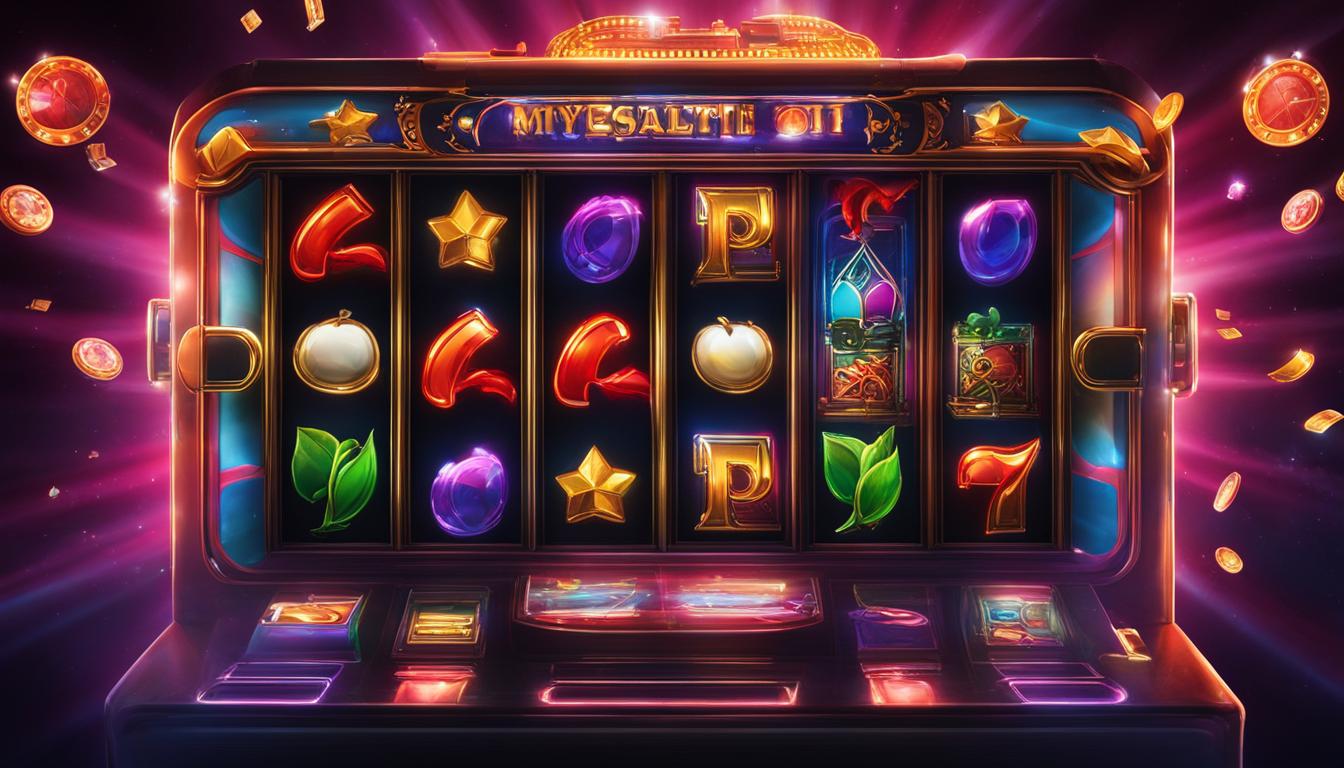
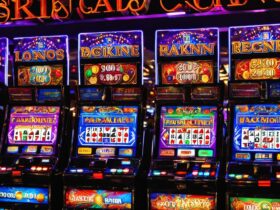


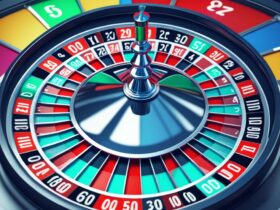

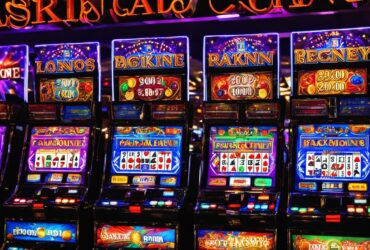
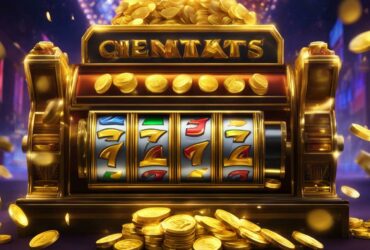
Leave a Reply